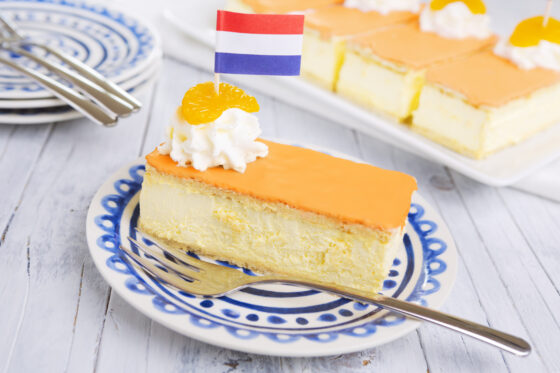Partner content
You may well be speaking more Dutch than you realise

Some Dutch words are just too good not to adopt.
They so perfectly describe a thing or situation that the Dutch word has often obliterated the English one in our lexicons, if ever there even was one. I’m thinking about the borrel and its accompanying hapjes. Cocktail party? Happy hour? Drinks? With hors d’oeuvres or finger food?
None of the English translations seem to encapsulate the full panoply and joy of the extremely diverse borrel, which works just as well for the holiday fest and after work get together as it does the birthday and home party.
For Alexander Whyte, a 34-year-old Londoner who moved to Amsterdam last year, gezellig is his Dutch word of choice.
“There’s no direct English translation,” he says. “And it encompasses so many different scenarios.”
For those new to the Dutch language, think “cosy”, or a relaxed and warm atmosphere or social situation (such as a borrel at your local brown café).
Learning Dutch
Whether you’re interested in upping your Dutch vocabulary or learning to speak Dutch, you can make like Whyte and head to Taalthuis, which offers small and personal Dutch classes—with an emphasis on fun.
“These are not your typical textbook classes from school,” says Whyte. “They’re fun and engaging and aligned with your learning trajectory. They make it a comfortable and open environment, where you talk about personal experiences and get to know your fellow students from the start. The comradery makes it easier. You feel more comfortable and eager to speak up.”
Which is what Taalthuis is all about: focusing on speaking skills so people feel more at ease talking Dutch. “It’s fun to learn Dutch,” says Taalthuis teacher Ellen Brussee. “It’s a nice, warm atmosphere—gezellig!”
With locations in eight Dutch cities—including Amsterdam, Den Bosch, Den Haag, Utrecht and Leiden—and lessons also available online, Taalthuis caters to internationals, au pairs and international students seeking to integrate into Dutch society via its language.

“You can survive in the Netherlands very easily not speaking Dutch, but you don’t get the same experience,” says Whyte, who was growing weary of being the lone English-language speaker in the office and with friends. “They can’t always speak English for me. I see a long-term future here with my Dutch girlfriend and Jack Russell, Dunja. Our kids will speak Dutch. So, I’m ready for it.”
The method
Brussee says she and her colleagues are able to spend a lot of time going deep into the material, which is exclusively Taalthuis’ and is supplemented with games, clocks and even dolls to learn body parts. “It’s nicer than just a book and online material,” she says of the content that includes current events and Dutch culture. “And it’s nicer than just listening to what the teacher says!”
In addition to gezellig, Brussee says her students have pinched other Dutch words into their English vocabularies. “When I ask how they are, they love saying ‘Prima!’” she says.
They also like using dat klopt (“that’s right”), helaas pindakaas (literally “unfortunately, peanut butter” but colloquially “too bad”—a Dutch phrase having more to do with rhyme than reason), and dingetje (thing or thingy), as in “there’s one dingetje.’”
Taalthuis leaves plenty of time to practice Dutch pronunciation, which has some notoriously difficult sounds. “Students always have trouble with the double ‘u’ as in huur (rent),” says Brussee. “They say whore!”
Taalthuis offers au pairs and international students a 5% discount on all regular courses and also gives in-company lessons to meet a business’ specific needs.
“I love it,” says Whyte. “It’s an organic way of learning.”
If you want to get even more in touch with Dutch culture, a Taalthuis innovation for 2024 is a special Cultuurcursus for those of you at around A2 level. It features 18 lessons with a text, exercises, vocabulary, some grammar and recipes! It also comes with a little box of Dutch treats to get you in the mood.
Thank you for donating to DutchNews.nl.
We could not provide the Dutch News service, and keep it free of charge, without the generous support of our readers. Your donations allow us to report on issues you tell us matter, and provide you with a summary of the most important Dutch news each day.
Make a donation